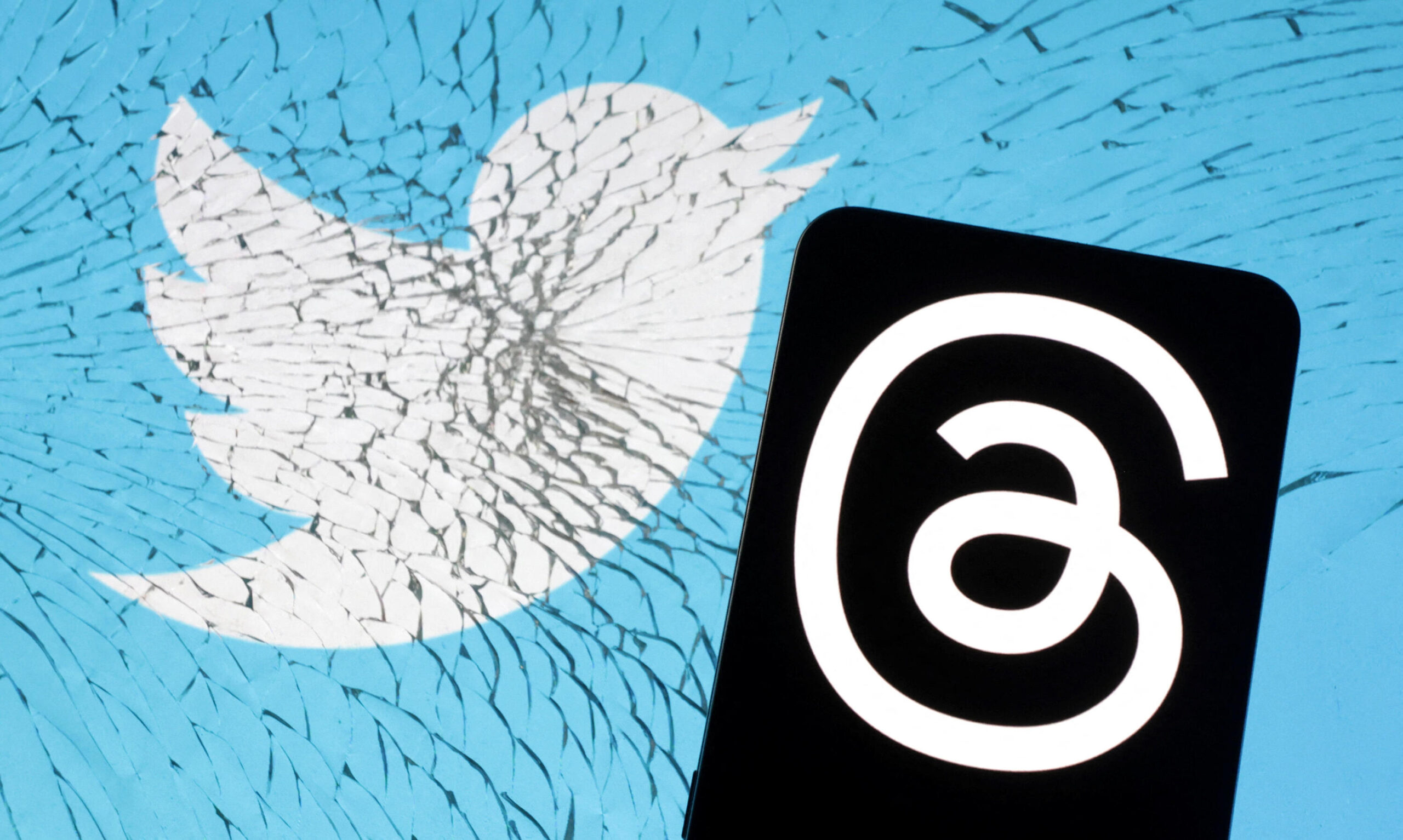
Meta’s groundbreaking ‘Threads’ caused a seismic shift in social media, generating unparalleled excitement. Positioned as the ultimate challenger to Twitter, Mark Zuckerberg disrupted the online networking landscape by introducing Threads which is increasingly perceived as a clone of Twitter. This clash between industry giants has triggered a heated discussion among internet users as they ponder which platform would ultimately prevail and endure.
While some attributed Threads’ success to Musk’s controversial Twitter behaviour, recent trends have revealed a different narrative. Despite Meta’s microblogging platform amassing a staggering 100 million users within two days of its launch, the tides have now turned, evident from the diminishing interest observed on Google Trends.
According to Natasha Blumenkron, the vice president of paid social at marketing firm Tinuiti, Threads have become a hot topic among her company’s clients. These clients are grappling with incorporating the messaging app into their social media strategies.
Numerous businesses, driven by concerns over brand safety and the perceived rise in racist and hateful content on Twitter, have halted their advertising efforts on the platform. For these companies, the prospect of advertising on Threads is met with enthusiasm once that option becomes available, as stated by Blumenkron.
Adam Mosseri, the head of Instagram, has stated in interviews and a post on Threads that Meta’s current focus is primarily on developing the core Threads product rather than monetizing the app. As a result, several popular features commonly found in other social media applications, such as hashtags or the ability to view posts in chronological order, are currently unavailable. Mosseri has mentioned that his team is actively working on incorporating some of these tools into Threads.
Blumenkron elaborated that many brands are intrigued by the potential of Threads to introduce additional features like chronological feeds and the ability to search for hashtags. These features can prove valuable for businesses, as they can ensure their posts reach the appropriate audience and provide insights into relevant trending topics that can inform their content creation.
Blumenkron emphasized that brands primarily ensure their content reaches relevant audiences when considering paid advertising on Threads. As brands invest in advertising, they want to ensure they are targeting the most appropriate audience to maximize the impact of their campaigns.
Tipograph, however, believes that Threads needs a substantial user base of individuals who consistently engage with each other on the platform to make a significant impact on online advertising. This can be measured by the number of daily active users, a well-established metric in the marketing industry.
Tal Jacobson, the incoming CEO of Perion Network, echoes this sentiment, stating that the number of sign-ups alone does not hold much significance. While it was easy for existing Instagram users to create Threads accounts, it remains uncertain how active they will be on the new messaging app. Jacobson suggests that the number of conversations taking place on the platform would be a more meaningful statistic for advertisers.
As Threads is still in its early stages, Tipograph points out that it’s unclear what kind of audience the platform is attracting. Companies will be observing whether Threads draws a different audience compared to existing Instagram users, as this will impact their marketing strategies.
Mosseri recently stated that Threads will not actively promote discussions on news and politics, with a focus instead on topics like fashion and sports, aiming for less divisiveness. This positioning might make Threads less appealing to Twitter’s core audience, who use the platform to stay updated on news and politics in a fast-paced manner.
According to Brian Wieser, a media consultant and former technology analyst, even if Threads doesn’t attract an audience interested in news and politics, it could still be a successful venture for Meta. Wieser suggests that the potential audience for entertainment and lifestyle content may be significantly larger than the audience interested in hard news. Therefore, focusing on these areas could be a better business strategy for Meta, with fewer reputational risks involved.
Wieser further speculates that if Threads manages to keep users engaged and distinct from other video apps, it has the potential to become a valuable multi-billion dollar business incrementally.
On the other hand, Angelo Carusone, chairman and president of the Media Matters for America nonprofit, argues that if Instagram prioritises lifestyle content over hard news, it may lack the same level of relevance as Twitter in shaping national and global affairs.
Carusone highlights that Media Matters and other organisations like Free Press and Accountable Tech called for advertisers to cease spending on Twitter when Elon Musk took over, citing concerns over an increase in hate speech and other issues. (IPA Service)
The post Meta’s ‘Threads’ Is Certainly A Major Challenge To Twitter’s Domination first appeared on IPA Newspack.


